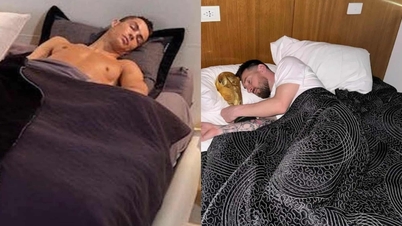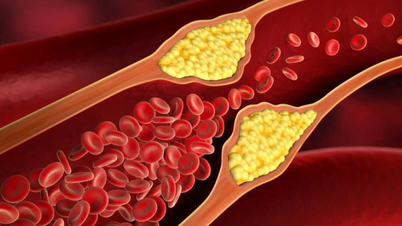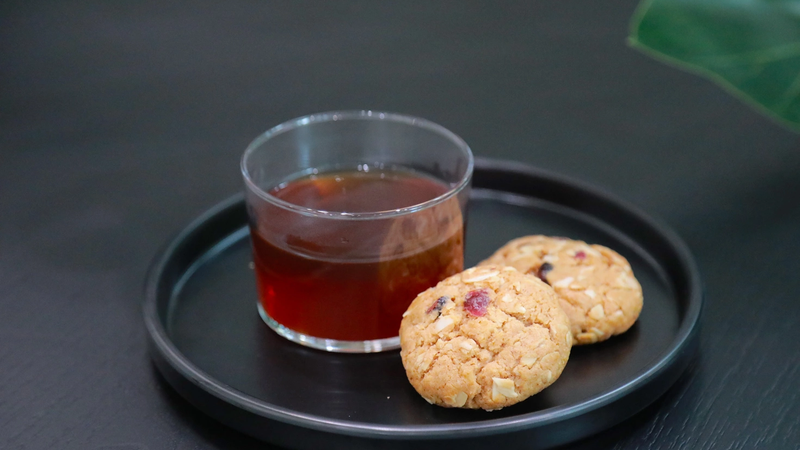
Many people spend hours every day exercising but still cannot lose weight - Photo: PA
Many people are beginning to doubt the effectiveness of exercise for weight loss. But according to experts, this phenomenon has many explanations - for trying hard to exercise to lose weight, but then the weight just doesn't come off.
After exercising, I eat foods that make me gain weight easily.
One of the main causes is the phenomenon of “metabolic adaptation”.
When the body recognizes repetitive physical activity, it adjusts itself to use less energy to sustain life. A report published in the Journal of Clinical Endocrinology & Metabolism (USA, 2020) said that metabolic rate can decrease by 5-15% after 6-8 weeks of doing the same type of exercise without increasing the intensity.
Endocrinologist Diana Thomas (USA) commented in this magazine that the body is “smarter than we think” and always tries to save energy. This explains why many people initially lose weight quickly, but then their weight stays the same.
Additionally, the unconscious “compensation” behavior after exercise is often overlooked. When we finish a workout, the feeling of fatigue can easily lead us to reach for sweets, sugary electrolyte drinks, or larger portions.
The International Journal of Obesity (UK, 2019) noted that people who exercise lightly to moderately tend to eat an extra 150-300 kcal per day without realizing it.
Cornell nutritional psychologist Brian Wansink warned on CNN Health that people tend to “reward” themselves after exercise, making it difficult to lose weight. The result: the calories consumed may exceed the calories burned, even though the exerciser believes they “burned a lot.”
Another common problem is doing only cardio without incorporating strength training. Muscle is the determining factor of basal metabolic rate (BMR).
When you run or cycle for long periods of time, your body can lose some of its lean muscle mass and therefore burn less energy even at rest. Harvard Medical School (Harvard Medical School, USA, 2021) explains that strength training 2-3 times a week helps maintain muscle mass, reduce visceral fat, and improve insulin sensitivity.
“If you don’t build muscle, you’re cutting down on your own fuel economy,” says physical therapist Dr. David Nolan, which is why many people feel like they’re “getting nowhere” the more they run.
Notably, calorie counters on smartwatches and treadmills often overstate calories burned. A study by Stanford Medicine (Stanford School of Medicine, USA, 2017) found an average error of 27% in energy consumption tracking devices.
Users believed they had burned 500 kcal, but in reality it could be as little as 360-380 kcal. Professor Euan Ashley, the study’s author, told the BBC that “wearables are not reliable enough to be used as a guide to calorie intake.” This error contributes to persistent weight gain.

A reasonable lifestyle and exercise are needed to successfully lose weight - Photo: PA
Stress affects the waistline
Chronic stress also has a strong impact on the waistline. Work stress, family pressure, and late-night exercise habits can easily increase cortisol levels. The Journal of Obesity Reviews (USA, 2020) analyzed that cortisol increases visceral fat storage and soft tissue water retention, leading to a larger waistline even if total weight remains the same.
Poor sleep is the final link that cannot be ignored. When you lack sleep, the hormone ghrelin (which stimulates appetite) increases and leptin (which signals fullness) decreases.
Accordingly, people who sleep less than 6 hours per night tend to increase their daily food intake by 200-350 kcal. Sleep expert Matthew Walker (University of California Berkeley) commented in the New York Times that "the body in a sleep-deprived state really likes sweets and high-energy foods." Many people think they crave food because they exercise, but in fact it's because the brain "compensates."
When you combine these six factors, it is not difficult to understand why your weight remains unchanged despite your perseverance. Exercise is important, but it cannot be done alone without adequate sleep, stress management, and proper eating habits.
Source: https://tuoitre.vn/vi-sao-tap-giam-can-hoai-ma-khong-giam-2025111021592979.htm


































![[Photo] Prime Minister Pham Minh Chinh attends the annual Vietnam Business Forum](https://vphoto.vietnam.vn/thumb/1200x675/vietnam/resource/IMAGE/2025/11/10/1762780307172_dsc-1710-jpg.webp)




























































![Dong Nai OCOP transformation: [Article 4] Reaching national standard products](https://vphoto.vietnam.vn/thumb/402x226/vietnam/resource/IMAGE/2025/11/11/1762825820379_4702-cac-san-pham-trai-cay-chung-nhan-ocop-nongnghiep-174649.jpeg)



![Dong Nai OCOP transition: [Article 3] Linking tourism with OCOP product consumption](https://vphoto.vietnam.vn/thumb/402x226/vietnam/resource/IMAGE/2025/11/10/1762739199309_1324-2740-7_n-162543_981.jpeg)







Comment (0)